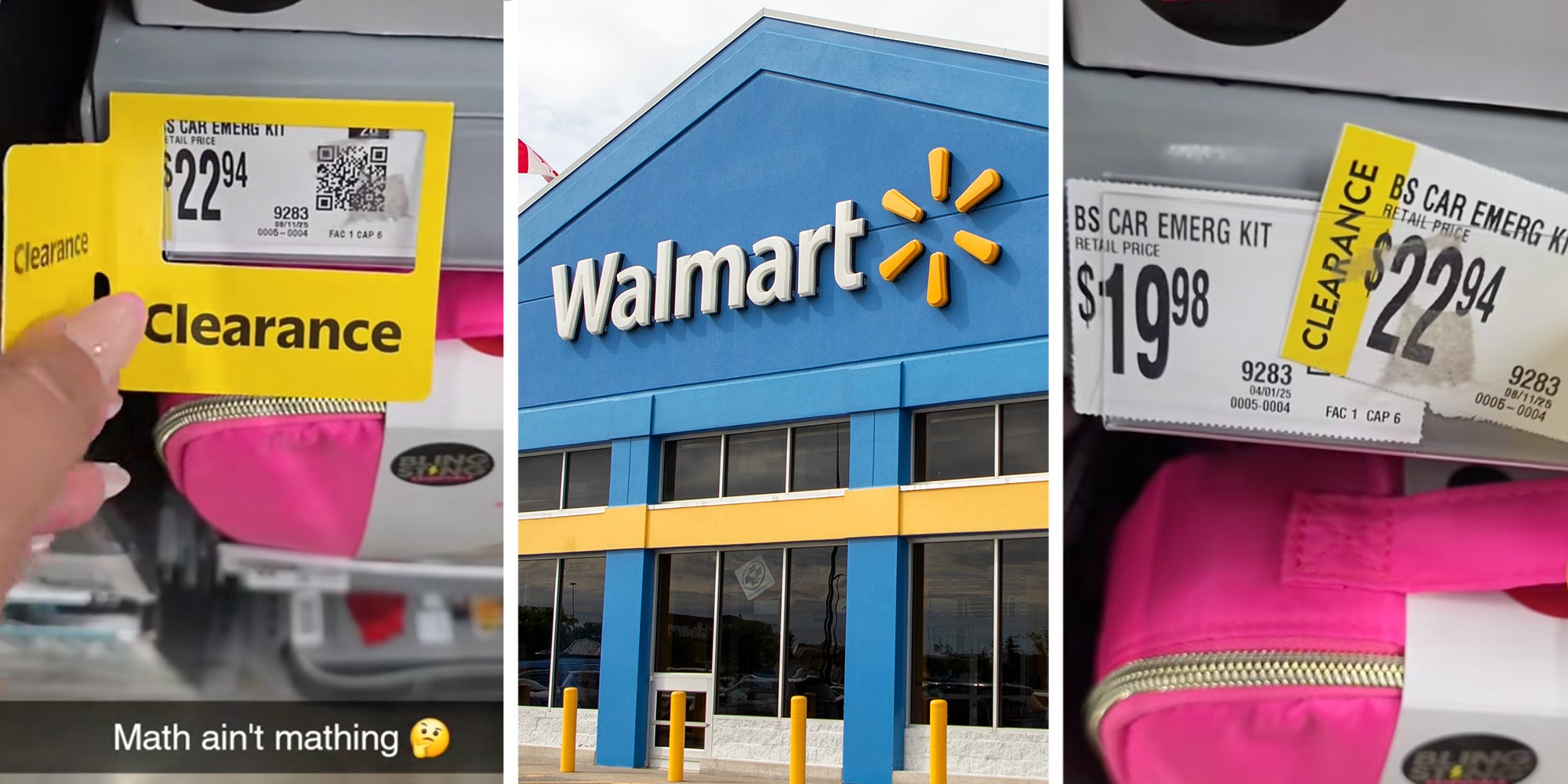A routine trip to Walmart turned into a moment of disbelief for one shopper who stumbled upon what appeared to be a pricing blunder.
She was browsing the store’s selection of car emergency kits when something unusual caught her eye.
Clearance Tag Higher Than Original Price
Upon closer inspection, she noticed that a clearance sticker showed $22.94, even though the original price tag behind it read $19.98.
Essentially, the “sale” was actually more expensive than the regular price.
The shopper’s discovery was captured on TikTok, quickly going viral with nearly 2 million views.
Many viewers jumped in, accusing Walmart of inflating prices to make discounts look more appealing.
Public Outcry and Price Concerns
“Yep, they jack up the price and call it a sale. All stores do this pretty much,” one TikTok user commented.
Another added, “That’s why I don’t believe them when they say tax-free. They just raise prices first.”
Some pointed out the possibility of a simple employee error, noting that the $22.94 price matched the product’s online listing.
The general advice? Always double-check tags or research prices before buying.
Walmart Introduces Digital Price Tags
Walmart has been gradually rolling out electronic shelf labels—digital price tags designed to make updates easier, reduce paper waste, and save staff time.
The plan is to have these in 2,300 stores by next year.
“This is why Walmart wants digital tags—people are noticing the price gouging,” another TikTok user noted.
“With digital pricing, you might not even know unless you research every sale item you buy,” added a second commenter.
Broader Concerns Over Retail Price Hikes
This pricing incident isn’t happening in isolation.
Rising prices at major retailers have become a hot topic, fueled in part by tariffs introduced during President Donald Trump’s administration.
Walmart employees previously highlighted social media posts showing price increases on everyday essentials starting in April. In one extreme case, shrimp prices doubled at a single store location.
Target has also faced scrutiny after employees leaked information about price changes online, like a USB-C cord jumping from $9.99 to $17.99.
Amazon and Home Depot have similarly adjusted prices in response to tariffs, despite earlier pledges to shield customers from inflation-driven price increases.
Retailers’ Promises vs. Reality
The controversy continues as Walmart had previously pledged not to adjust prices until next year.
Incidents like these, however, show that price changes are happening sooner—and shoppers are noticing.



